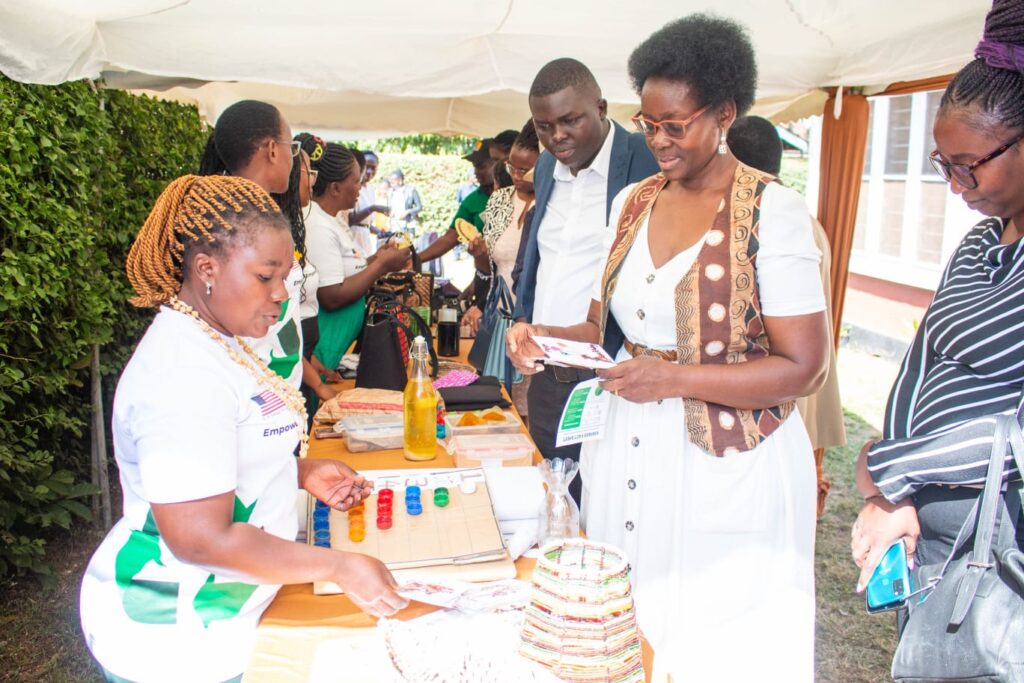At least 40 women from Kakamega, Kisumu and Maseno have benefitted from a training on valuable waste management and entrepreneurial skills
Through Kenya Women’s Initiative for Waste Entrepreneurship and Sustainability (KWIWES) program, a cohort of 10 trainers and 30 entrepreneurs were taken through personalized mentorship, provision of linkages to potential investors, and access to funding.
KWIWES reiterated the significance of sustainable practices and circular economy and fostering a new generation of women leaders.
The project beneficiaries were also equipped with the much-needed tools and skills to kickstart and grow sustainable waste-based businesses, and upscale employment opportunities.
“We are glad that 83.3 percent of the entrepreneurs were also able to forge new partnerships and 95.8 percent expanded their market reach while participating in the KWIWES program. At HOK, we are keen on contributing to the creation of a sustainable and inclusive economy through harnessing innovations and collaborations,” Benson Abila, CEO HOK
The women aged mostly below 35 years were also imparted with knowledge on how to create a safe and healthier environment in society to address the ever spiralling environmental degradation.
According to the program organizers, during the program, over 300 jobs were created, with part-time and full time jobs accounting for 61.8 and 38.2 percent respectively.
To achieve sustainable economic growth, the businesses were supported with an average monthly revenue of Sh63,163, resulting in an income generation of 83.3 percent during the program.

Networking opportunities
Kisumu County First Lady Dorothy Nyong’o who graced the celebration of the success of the program expressed her satisfaction with what she termed as amazing environmental work the beneficiaries were doing.
The event was hosted at the Green and Circular Economy Summit event held at Homeless of Kisumu (HOK) offices.
“My mind was blown away with the idea that even scales have a use. I want to wish all of you well as you scale up in your endavours,” she said.
Ms Nyong’o pledged to help the young entrepreneurs with relevant linkages with various stakeholders within the county government.
Benson Abila, HOK and M-taka Founder and CEO said that 45.8 percent of the women formalized their business as program participants.
“We are glad that 83.3 percent of the entrepreneurs were also able to forge new partnerships and 95.8 percent expanded their market reach while participating in the KWIWES program. At HOK, we are keen on contributing to the creation of a sustainable and inclusive economy through harnessing innovations and collaborations,” he said.
In the business clinics, Abila noted that the women were taught financial management and the right way of doing bookkeeping to integrate their businesses.
The key highlights of the forum were the celebration of waste entrepreneurs (women and youth) who have successfully transformed waste into valuable resources thus contributing to job creation and environmental sustainability.
To tap into the Waste Entrepreneurship within the green circular economy in their communities, expert panelists from Entrepreneur Support Organizations (ESOs), Producer Responsibility Organizations (PROs), county government representatives, and investors gave tangible insights in an engaging discussion.
The summit gave entrepreneurs, investors, and stakeholders an ample opportunity to network, forge partnerships and create new avenues for collaboration in the waste management sector.
During the training and mentorship sessions, the beneficiaries revealed that they found the following as most valuable; Networking (24.6), Linkages (21.5), Mentorship (26.1), and Training (27.7).
The program was rolled out as a partnership between the US Embassy, Start Up Bug, HOK and M-taka.
Harriet Okeyo, Victoria SCAPAS’s Junior Research Scientist in Marine Fisheries and Aquaculture explained that their organization is keen on fighting eutrophication (increase in growth of algae) in Lake Victoria.
Their solution method is to convert fish waste (scales, offal, head, skins etc.) into viable products to economically sustain young and potential youths.
On future business goals, she appealed for the purchase of modern machinery and equipment to boost their fish-oil production capacity.
